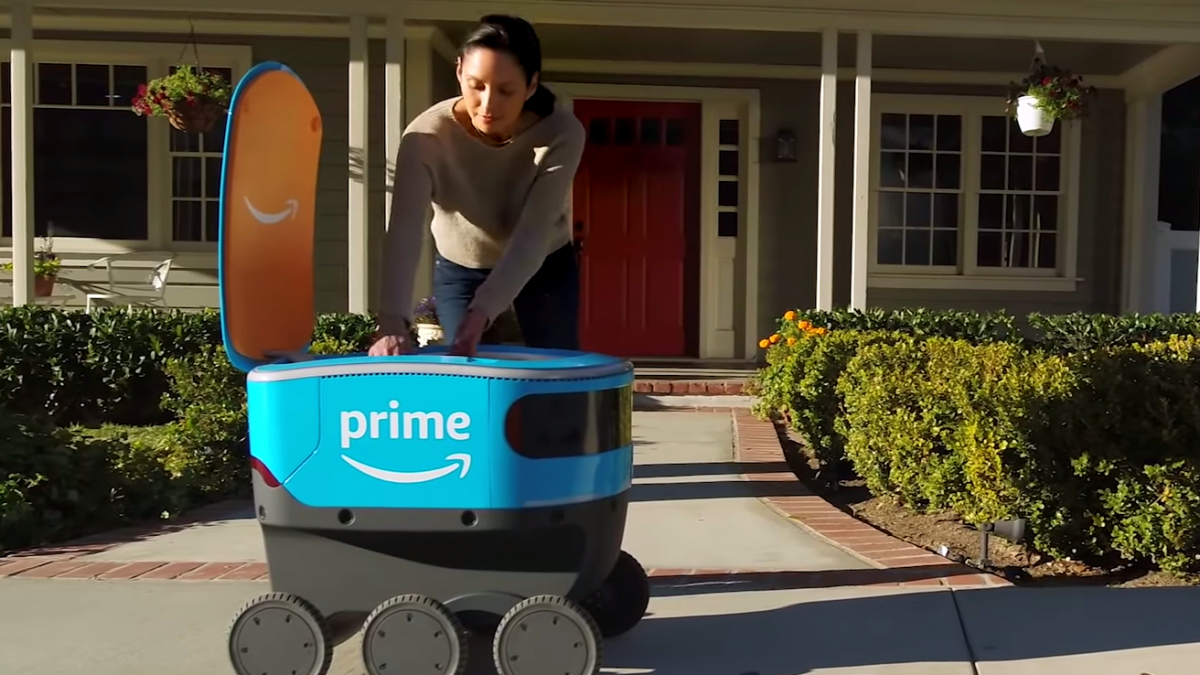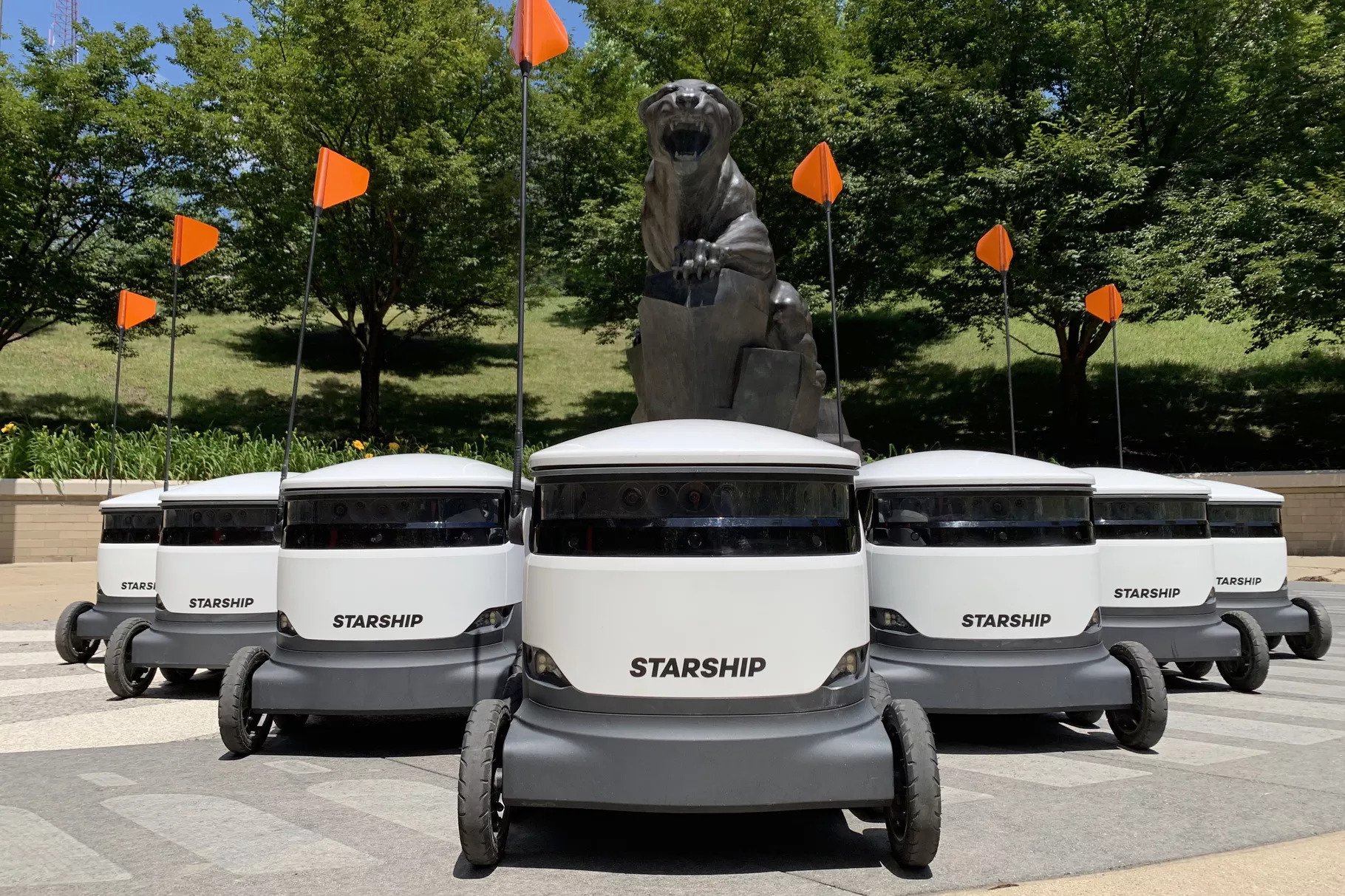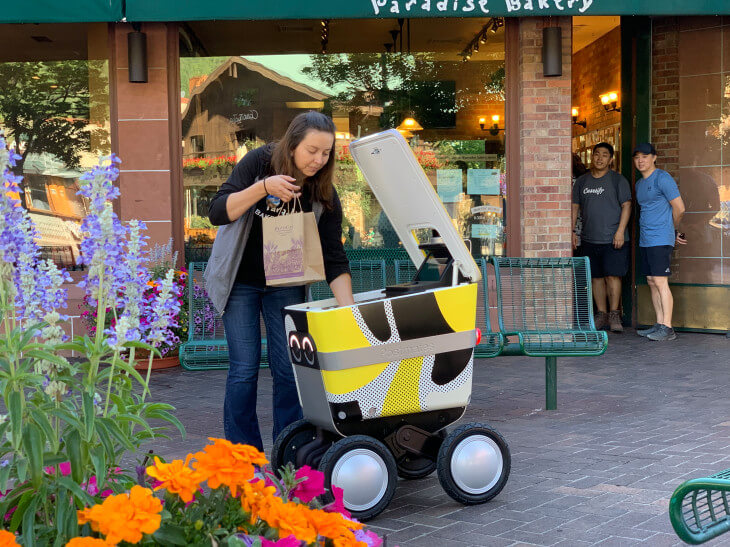
With self-driving vehicle technology rapidly advancing, many companies are turning to autonomous robots for the final leg — the so-called last mile — of the delivery process, from the store or local distribution center to the customer. The latest to join the trend is e-commerce giant Amazon. Following a successful eight-month test run in Snohomish County, Washington, the company's Scout robots have been making the rounds of Irvine, California, since August 6, 2019.
The six-wheeled Scout, which sports Amazon's familiar Prime logo, is about the size of a large cooler with the capacity to carry small or medium-sized packages. The battery-powered vehicle, which moves at a regular walking pace, has been programmed to avoid pedestrians, animals, and unexpected obstacles, such as garbage cans. Its powerful sensors can also detect the movement of a car backing out of a driveway.

To accelerate Scout's development and bring it nationwide sooner, the company has created several detailed virtual maps of American suburbs and conducted simulated deliveries to homes there. “We can run thousands of deliveries in simulation overnight versus taking a bot outside in the real world,” Scout VP Sean Scott told The Verge. “The bot doesn’t actually know it’s in a simulation. It thinks it’s in the real world, which is pretty cool.”
Though Amazon has not revealed how Scout ensures the delivery is picked up by the right person, it most likely requires the customer to apply a unique code, texted to them prior to the delivery, to unlock the cargo bay. Also unclear is the number of deliveries Scout can complete before its battery needs to be recharged. Though the initial tests are being conducted with a human in tow, the robot will be autonomous in the future. Its location, however, will be tracked at all times — if someone attempts to steal Scout, Amazon employees will be instantly alerted.

While Amazon is focusing on home deliveries, San Francisco-based Starship Technologies has its eyes set on college students. On August 20, 2019, the company announced plans to deploy thousands of robots to deliver food and other items to students at college campuses across the country. Unlike Scout, Starship's eponymous bots are seasoned workers with extensive street experience. They have been tested in over 100 cities in 20 different countries, traversed 350,000 miles, crossed 4 million streets, and successfully completed over 100,000 deliveries.
Meanwhile, food and grocery delivery company Postmates' bug-eyed robots are currently making their rounds along the busy San Francisco streets. Also in test-mode, the robots can carry up to 50 lbs and travel 30 miles on a single battery charge.

Though the eco-friendly robots will help free our streets of bicycles, motorized scooters, and large delivery trucks that typically ferry packages, they have some limitations. They are unable to climb stairs or open gates, which means that they can only reach consumers who live on the ground level. Additionally, the robots are unable to leave packages at the front door if the customers are not home. Whether these issues get resolved remains to be seen. For now, it appears that humans will still be needed to fulfill the ever-growing demand for home and office deliveries.
Resources: The Verge.com, Cnet.com,Wired.com
